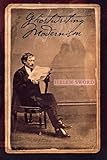Ghostwriting Modernism / Helen Sword.
Material type: TextPublisher: Ithaca, NY : Cornell University Press, [2018]Copyright date: ©2002Description: 1 online resource (232 p.)Content type:
TextPublisher: Ithaca, NY : Cornell University Press, [2018]Copyright date: ©2002Description: 1 online resource (232 p.)Content type: - 9781501717666
- American literature -- 20th century -- History and criticism
- Death in literature
- English literature -- 20th century -- History and criticism
- Ghosts in literature
- Modernism (Literature) -- English-speaking countries
- Occultism in literature
- Postmodernism (Literature) -- English-speaking countries
- Spiritualism in literature
- Spiritualism -- English-speaking countries -- History -- 20th century
- Cultural Studies
- Literary Studies
- LITERARY CRITICISM / Modern / 20th Century
- 820.9/37
- PR478.S64S96 2002
- online - DeGruyter
| Item type | Current library | Call number | URL | Status | Notes | Barcode | |
|---|---|---|---|---|---|---|---|
 eBook
eBook
|
Biblioteca "Angelicum" Pont. Univ. S.Tommaso d'Aquino Nuvola online | online - DeGruyter (Browse shelf(Opens below)) | Online access | Not for loan (Accesso limitato) | Accesso per gli utenti autorizzati / Access for authorized users | (dgr)9781501717666 |
Frontmatter -- Contents -- Preface -- INTRODUCTION -- Chapter One.Necrobibliography -- Chapter Two.The Undeath Of The Author -- Chapter Three. Necrobardolatry -- Chapter four. Metaphorical Mediumship -- Chapter Five. Modernist Hauntology -- Chapter Six. Ghostwriting Postmodernism -- Epilogue Ghostreading -- Notes -- Bibliography -- Index
restricted access online access with authorization star
http://purl.org/coar/access_right/c_16ec
Spiritualism is often dismissed by literary critics and historians as merely a Victorian fad. Helen Sword demonstrates that it continued to flourish well into the twentieth century and seeks to explain why. Literary modernism, she maintains, is replete with ghosts and spirits. In Ghostwriting Modernism she explores spiritualism's striking persistence and what she calls "the vexed relationship between mediumistic discourse and modernist literary aesthetics."Sword begins with a brief historical review of popular spiritualism's roots in nineteenth-century literary culture. In subsequent chapters, she discusses the forms of mediumship most closely allied with writing, the forms of writing most closely allied with mediumship, and the thematic and aesthetic alliances between popular spiritualism and modernist literature. Finally, she accounts for the recent proliferation of a spiritualist-influenced vocabulary (ghostliness, hauntings, the uncanny) in the works of historians, sociologists, philosophers, and especially literary critics and theorists.Documenting the hitherto unexplored relationship between spiritualism and modern authors (some credulous, some skeptical), Sword offers compelling readings of works by James Joyce, T. S. Eliot, W. B. Yeats, H.D., James Merrill, Sylvia Plath, and Ted Hughes. Even as modernists mock spiritualism's ludicrous lingo and deride its metaphysical excesses, she finds, they are intrigued and attracted by its ontological shiftiness, its blurring of the traditional divide between high culture and low culture, and its self-serving tendency to favor form over content (medium, so to speak, over message). Like modernism itself, Sword asserts, spiritualism embraces rather than eschews paradox, providing an ideological space where conservative beliefs can coexist with radical, even iconoclastic, thought and action.
Mode of access: Internet via World Wide Web.
In English.
Description based on online resource; title from PDF title page (publisher's Web site, viewed 26. Apr 2024)


